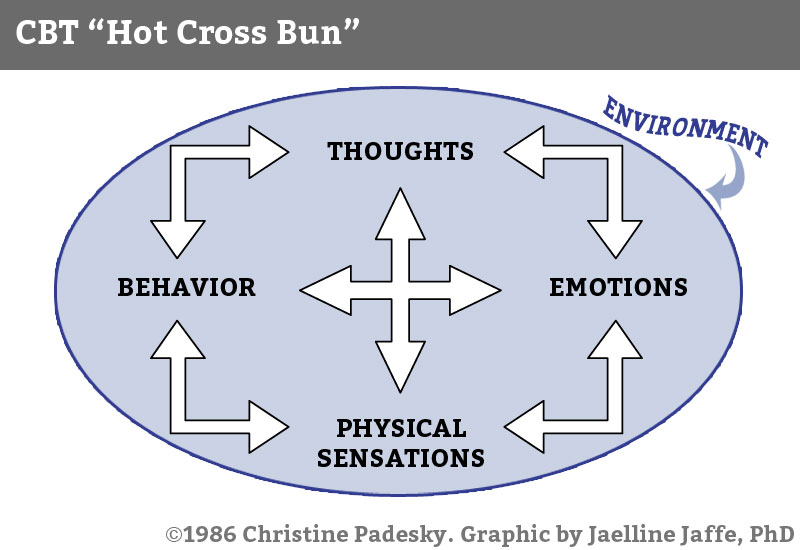- Cognitive therapy: how negative thoughts, or cognitions, contribute to anxiety.
- Behavior therapy: how you behave and react in situations that trigger anxiety.
- Basic premise of CBT: It’s not the event or situation you’re in that determine how you feel.
- It’s your thoughts about the event or perception of the situation that determine how you feel.
- Your thoughts, feelings, and behaviors are all connected.
- If you change your thoughts about the situation, you will be able to change your feelings and reactions to the situation.
- If you change the way you think, you will feel better and act better — even if the situation does not change.
- If you are upset about a problem, you now have two problems: the original problem + your upset about the problem
- You can learn to develop calm in face of problems
- You can learn to change (unlearn) learned behavior
How can CBT help with Tinnitus or Misophonia?
A very simplistic explanation: We are constantly bombarded by millions of pieces of information. We simply cannot pay attention to ALL of them at the same time. Therefore, we selectively focus on certain things and ignore others. When we have a medical problem that is as annoying and compelling as Tinnitus or Misophonia, they naturally draw and hold our attention. THEY do the choosing and selecting.
The challenge is to train our brains so that WE regain control over the process — so that even though the problem has not gone away, our ability to shift our focus elsewhere takes our minds off the problem, at least for the moment. We have all experienced moments of peace, when we were interested and involved with something else and temporarily forgot about our noise problems. CBT can help us learn to make those shifts and choices of focus with greater ease — and by intention, not just by chance.


